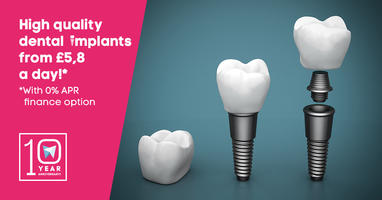Although one of the most frequent surgical procedures with a 98% rate of success, dental implants can use some amount of modification to make them even better. While the initial dental implants tend to stay in with the overwhelming majority of patients, they frequently tend to cause peri-implantitis after a decade or so, a problem that not many dentists are talking about, and inflammation is also a problem. Basically, to make dental implants better, we must make them more biocompatible.

The problem with hardness
The main problem that dental implants pose is that they are - and need to be - much harder than bone. This is great because they are more stable, but since they are encased in, surrounded by and constantly touching bone material, they eventually wear down the jawbone and cause peri-implantitis. While doing so, they may also cause inflammations as the tissues are worn down. The micro movements and pressure applied to dental implants during usage eventually wear out the jawbone, and the hole they are in becomes wider and wider, until the dental implant starts to move and becomes unstable. How can this problem be reconciled?
The Nano scale
One place many scientists are turning to for a solution is the nano scale. Nanotechnology is the use of devices, materials and other things that are smaller than cells, and are operating at the molecular level. Nanotechnology can help dental implantation, as the problems that cause peri-implantitis begin very small. The best thing to do currently is to manipulate the surface coating of the dental implant.
In theory, a proper coating of some material that easily and quickly integrates into the jawbone should solve this problem. The coated surface is what touches the bone, and ideally the material integrates into the jawbone, allowing the bone cells to grow into, through and all around the surface material. This is why porous, biocompatible materials are used in these endeavours. Usually, a kind of special ceramic is used.
Modern dentistry
Although many of these techniques are still experimental and are only in the clinical stage, and cannot be used widely, some of them can. The knowledge that is being gained by experiments on the nano scale are providing new and effective measures to combat dental implant failure, and to make dental implants safer, more biocompatible, more comfortable and hopefully even cheaper.

